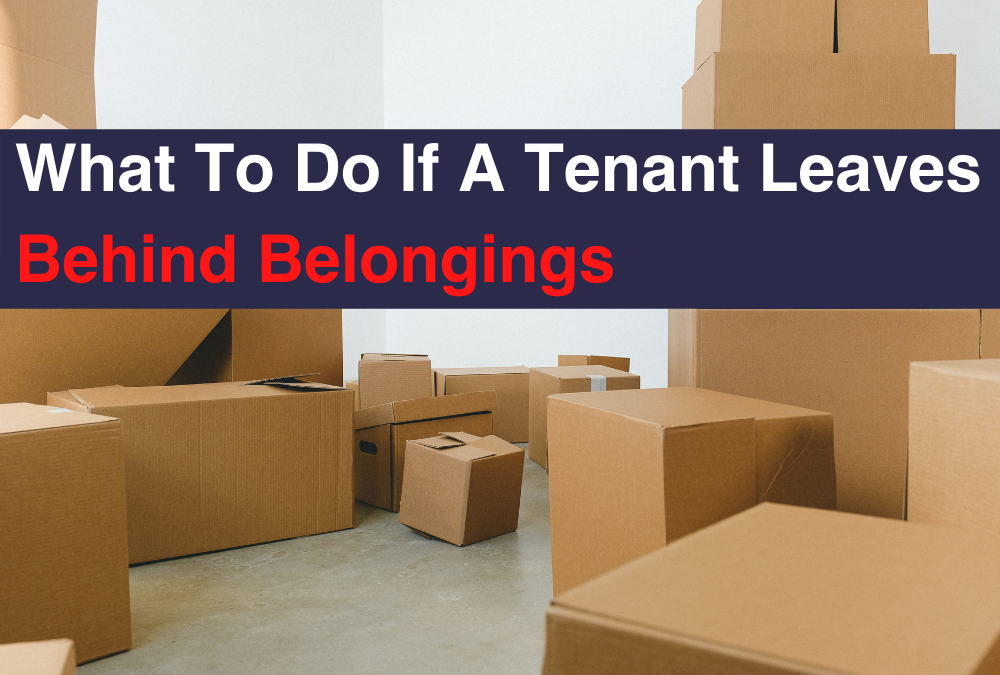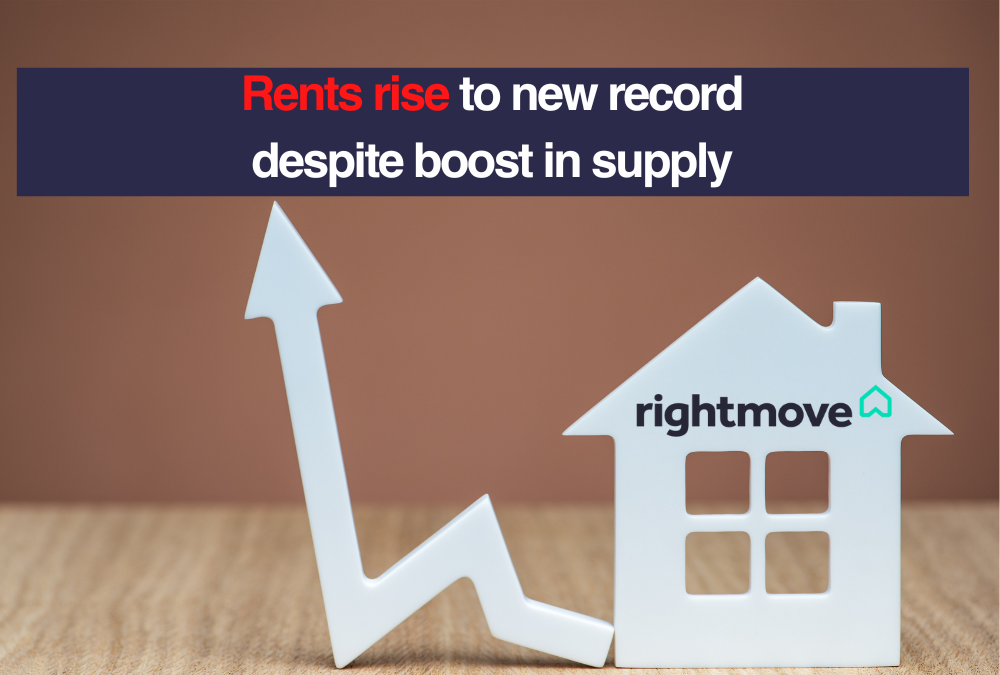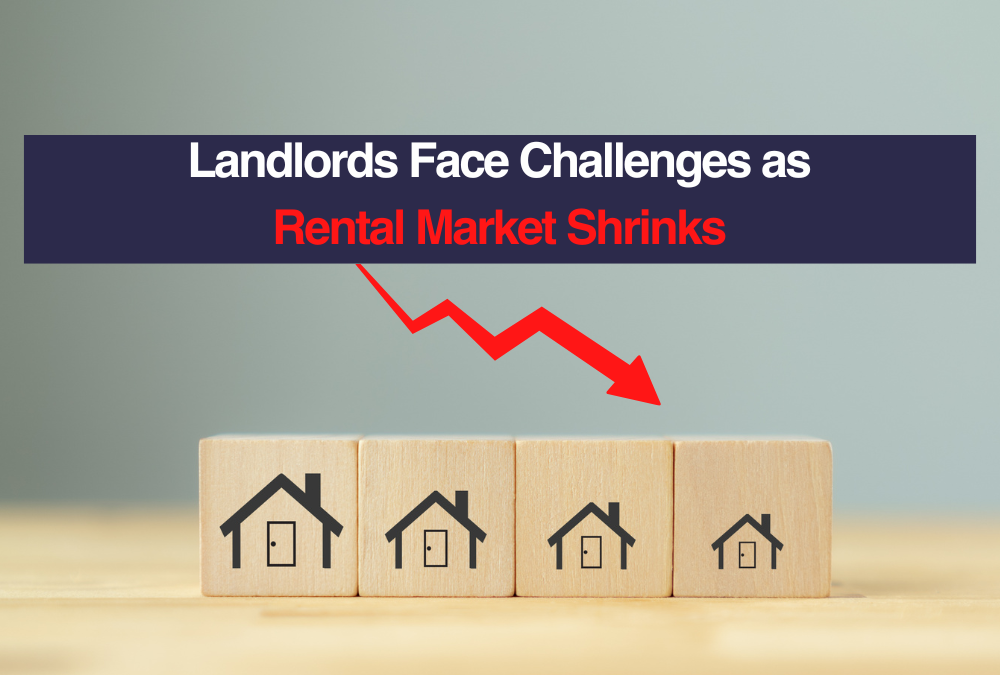Tenants leaving their possessions behind is a growing common problem and one that our landlords often ask us about. This is because landlords and their agents need to comply with the law and can’t just dispose of belongings straightaway, even if it’s known they are abandoned.
This article provides a brief guide for landlords and agents to follow to reduce any possible liability arising out of disposing of or selling uncollected goods.
Follow the Law
If your tenants have vacated their rented property before the end of the tenancy period and left their goods behind, there’s always a chance they intend to collect them later. Or they may simply have abandoned them. In either case, the goods still belong to the tenant and you as the landlord are responsible for ensuring the goods remain safe.
This is part of the Torts (Interference with Goods) Act 1977 which provides that a landlord or agent must take the correct steps and act “reasonably” before disposing or selling of what may seem to be abandoned goods.
Establish The Tenant Has Left The Property
You will only become responsible for the tenant’s belongings once they have vacated the property – it is vital therefore to establish the tenant has actually left, before starting to remove or store the goods.
Make Reasonable Attempts to Contact The Tenant
Once you know the tenant has left the property you must make reasonable attempts to contact them regarding their possessions, including:
- Trace the tenants,
- Obtain their forwarding address,
- E-mail, text, and call the tenants,
- Contact family members if you have their details,
- Contact the guarantor (if there is one), and
- Make all other reasonable attempts to contact the tenants
If you cannot confirm the tenant has left the property, then the presence of tenant belongings should make you wary of retaking possession without a bailiff enforcing a court order. This may be considered an illegal eviction which carries steep penalties.
Establish How Long You Need T Keep The Goods For
Items that have no resale value and a low probability that the tenant will return for them present little risk so are generally safe to dispose of straightaway, including:
- Old newspapers and magazines
- Standard letters/bills
- Food left in the fridge/freezer
- Old clothes
- Broken items
- Small crockery and kitchenware
- Houseplants
- Toiletries
Items that have a resale value and a high probability of the tenant wanting them back include:
- Computers and games consoles
- Mobile phones
- TVs and stereos
- White goods and other electrical appliances,
- Furniture
- Wall art
- Jewellery
- Complete crockery/kitchenware sets
- Tools
- Designer clothes/shoes/watches
- Vehicles/caravans
You should not dispose or sell of these items without following the tenancy agreement or Torts Act process with these items to minimise the risk of a claim.
Small items with sentimental value like photograph albums etc are unlikely to be claimable. However, they may lead to issues if the tenant requires them back later as they will be of great emotional value to the tenant.
Landlords are advised to store these goods if possible, as they will generally be easy to keep – and keep trying to contact the tenant before disposing of them.
What is a Reasonable Amount Of Time?
You are expected to hold the tenant’s belongings for a reasonable amount of time, not indefinitely. However, what is reasonable will depend on answering a couple of different questions –
- what is in the tenancy agreement?
- are there any rent arrears?
Should Their Be a Tenancy Agreement Clause?
This is highly recommended as, if the tenancy agreement has a clause detailing how the items will be stored and disposed of, then you can follow this.
The clause should set out which items can be disposed of immediately and which can be sold. It also entitles you to take the costs of storing the goods into account if they have to be removed from the property.
If the contract is not specific or there isn’t a clause at all on how to deal with the goods, then you should retain the goods for a reasonable amount of time before disposing of them. Typically this will be 30 days.
What if There Are Rent Arrears?
If the tenant was in rent arrears at the point they left, then you must retain the goods for a minimum of three months. The only exception to this is where –
- the tenant is in rent arrears; AND
- your contract states that you can dispose of the goods after a specific time (14 days for example)
In those cases, the contract will take precedent and you can dispose of the goods before three months has passed. Rent arrears are classed as a cost that can be claimed from the sale of goods.
Take The Correct Action to Serve Notice
If you have established the tenants have left the property and decided how long you will keep the goods for, the next step is then to serve a notice in accordance with Schedule 1 of the Torts (Interference with Goods) Act 1977, requiring the tenant to come and collect the goods. The notice should:
- Set out where the goods are kept
- Explain how to collect the goods and allow them reasonable time to do it
- Notify the tenants of the intended disposal of the goods after expiry of the notice period
- State that any sale and storage costs will be retained from the sale proceeds
It would also be prudent to attach a schedule of the goods that were left on the premises. We recommend taking a photographic or video record of the goods in case evidence is required to defend a claim for damages or conversion and to establish a defence of abandonment.
The notice should be sent to the former tenant if their contact details are known, and, in any event, should also be attached to the premises in a place where it can be seen.
At Horizon Lets we have had very recent experience with just this situation – a tenant left their managed property before the end of the fixed term and left behind virtually all their possessions:
Our Lettings Manager Samantha says;
“thankfully, in this case we were able to establish that the tenant had indeed left the property, as he confirmed this in an email and left his keys for us. The terms in our AST meant that we were able to dispose of most of the good immediately!”
Related Articles
- Lawful and Unlawful Discrimination – Tenants & Landlords
- Five Ways to Minimise Tenant Voids
- 10 Steps to Choosing The Right Tenants: A Landlord’s Perspective
- Different Types Of Tenancy Explained
- Should I Let My Tenant Decorate?








